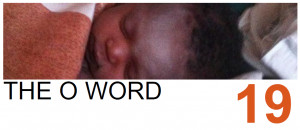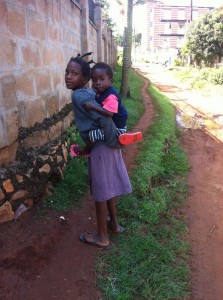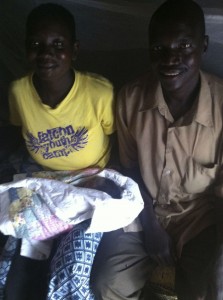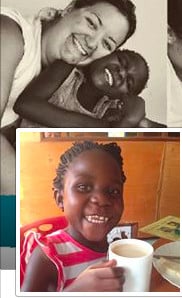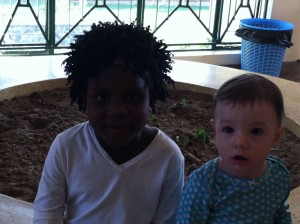A word from Curt
~It’s the O word.
Orphan.
Read more on why it’s such a complicated word in Africa.
We’re posting chapters from our new ebook, Trampled Grass.
- Read sample chapters or purchase at Amazon.
Gratefully,
Curt Iles
You can subscribe to our monthly Story Letter, here.
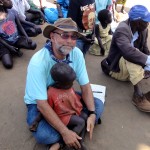
THE O WORD
“She’ll tell you she’s an orphan after you meet her family.”
–Chris Robinson in “She Talks to Angels”
African Orphans.
It’s the O Word.
Orphan.
It’s a controversial subject in both of our countries. Here in Uganda.
As well as the United States.
The word orphan.
Probably the most difficult part is defining an orphan.
Who is an orphan?
The simple answer is a child who has lost both parents. Mom and Dad are gone.
Many times through death. Death is very creative here: HIV/AIDS, war, diseases, domestic violence, and accidents. It can easily be any combination of the above.
Your chance of dying of old age are slim here.
Being an orphan: it can be desertion. I’m heartbroken by how many orphans do not know their father. They’ve never met him as in, “He left right after I was born.”
Do we have any right to declare a child with one dead parent and an absentee one, “Not a real orphan?”
I think not.
I hope not.
Orphans. The simple answer is a child with no father and mother.
But simple answers seldom suffice in Africa.
This continent is the origin of “It takes a village to raise a child.” It is part of the culture here, especially in the rural regions.
Family.
It’s often a complicated situation.
When an African says, “He is my brother,” we ask, “Same father/same mother?”
Because of polygamy, family trees often have many limbs.
Often when we peel away the layers, “She’s my older sister” is really “she is the daughter of my father’s brother.”
What we call a first cousin. But in Africa, a close cousin in the village is treated like a true sibling.
Extended family lives in small hamlets where the pot gets stirred together, both literally and figuratively. Openzi village, near Adjumani, is a good example. I’ve visited there dozens of times and am stilling discovering who’s who.
Joseph and Julious aren’t really brothers but cousins.
The two men Joseph refers to as “my father” are actually his father’s brothers.
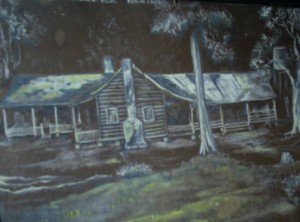
The Old House” pen and ink by Bill Iles
My Louisiana rural culture had customs like that. My dad, born in 1934, came home to The Old House which was populated with his parents, paternal grandparents, an old maid aunt, and two great grandparents.
Over the next two decades, five siblings were added to that mix. All of the older generations are long gone, but the old log house is still standing and my father’s generation is still intact like the logs placed there seven generations ago.
Family.
What a fine word.
He ain’t heavy. He’s my brother.”
Familial roles are often blurred in African culture
Like the O Word, Family can be hard to define.
I’m not an expert on orphans, adoption, and the unique relationship between America and Africa on this subject.
I compare it to a sparkling diamond’s many facets. Each one shows a different angle. These are some of the facets we’ve observed:
There’s Robert, an American pastor, who a decade ago, adopted a family of three orphan siblings.
Then he left them here in Uganda.
He and his wife chose to leave them in their native culture.
But they weren’t left alone. Pastor Robert paid for their education, training, and given them a solid foundation for life in Africa. Through his assistance, they were able to rise out of the poverty that grips orphans in Kampala.
He was compelled to act and he did.
Outsiders ( i.e., Westerners) can only address the tip of the orphan iceberg.
The best work is done by caring Nationals. Like the earlier story about our Dinka friend Peter taking in James, the lonely Anuak boy. Peter and his family saw a boy totally alone. They were compelled to act.
To get involved.
To put some skin in the game.
You’ll never see a movie or read a book about this unknown heroes but they are the heart and soul of helping refugee “Unaccompanied Minors.”
It’s a term that breaks my heart. Unaccompanied minors .It travels with another sad term: Child-headed households.
Their stories begin with, “The rebels attacked in the night. I ran after my father in the darkness. When he stopped, I realised it wasn’t my father. I still don’t know if he’s alive or dead.”
Uganda is well-known in adoption circles due to two high profile Americans:
There’s Katie Davis, author of Kisses from Katie.
A young American on a short term missions trip, Katie fell in love with the needy children in Jinja, Uganda.
She chose to give up her comfortable life and pour herself into building an orphanage. When we see her in Jinja, her van is packed with children.
Watching them unload at church is akin to the circus clowns pouring out of a small VW.
Katie Davis saw a need and was compelled to act. Sam Childers , best known forthe movie loosely based on his life, “Machine Gun Preacher,” is much more controversial.
Seeing the suffering of children ravaged by the Lord’s Resistance Army along Uganda and South Sudan’s border, Childers was compelled to act.
Compelled. There that word again. It means to be swept along by a force or idea. I’ve noticed it’s a word that aptly describes most difference makers in this world.”I saw this need and just couldn’t refuse to try to make things better.”Then there’s the story of Desire Grace.
We haven’t adopted an African child but we’ve sure fallen in love with many. They easily tug at your heart.
I guess in a way I am Desire Grace’s godfather.
Can a Baptist be a godfather?
Desire Grace’s parents, Joseph and Jessica Anyovi, live and minister near Adjumani Refugee Camp.
Joseph has been a key to the local Madi helping the arriving Dinka refugees. He is an inspiration and hero to our Chadan team.
He and Jessica recently had their first child. I was across the Nile when he called, “We’ve got a baby girl. She and Jessica are both doing fine.” “That’s great. What’d y’all name her?”
“Her first name is Desire. Baba (Father), we want you to give her a second name.”
I was honored but humbled.
What a privilege and responsibility.
I prayed and struggled for several days. When I returned to Adjumani, I had a peace. and a name:
“I’d like Desire’s middle name to be Grace.”
Desire Grace. It’s a good name. I told DeDe it sounded like the title of a John Piper book.
Desire Grace with her parents, Joseph and Jessica Anyovi
The final adoption story is extremely personal. The trouble with Africa is that there’s someone to fall in love with daily. My deepest love affair here (after my sweet wife DeDe) is named Daizy. That’s her on the chapter cover photo in her Aunt Jemima outfit cooking up some matoke.
Daizy Mae Thomas and her mother, KB.
She and her adoptive mother, KB Thomas, lived with us for five weeks. As Daizy, a precocious 8-year-old, walked through the long Ugandan adoption process, we realised it’s not for the faint of heart.
Nor for the thin of wallet.
It’s a test of endurance. KB, who serves as student director at my almamater, was compelled to finish this project.
Daizy and KB’s story is one to tell: She is a member of the Alur tribe. KBmet her in an Up Country orphanage several years ago.
Her mother is dead. She’s never seen her father who purportedly lives in the Lake Victoria Islands.
Daizy’s grandmother, lovingly known as Jajja, takes care of ten grandchildren/dependents.
At some point Jajja, decided the orphanage was the best place for Daizy. Don’t ask me why she chose Daizy and not one of the others.
I believe it was an act of love.
When KB began the adoption process, Jijja made the decision to allow Daizy to go to America.
It couldn’t have been an easy choice. Some people might criticise Jijja for giving up the rights to a granddaughter.
Once again, I choose to view it as sacrificial love in action.
I want the very best for you.
As the adoption process slowly meandered through embassies,government offices, and attorneys, KB and Daizy came to live with us. That’s when I fell hopelessly in love with Daizy Mae Thomas.
Others might questions KB, a single mom, on her sanity in spending a king’s ransom on being a single mom to an African girl.
It’s just what compelled people do.
Daizy Mae Thomas and Emma Iles Arua, Uganda December 2013
There’s an oft-told story of a boy walking along the beach. A high tide has deposited hundreds of starfish on the sand. The boy is picking up starfish and tossing them back into the ocean.
An older and wiser adult scans the vast beach covered in starfish. “Son, do you really think you can make a difference?”
The boy deftly frisbees another starfish into the the ocean. With a satisfied smile, he says, “I sure made a difference for that one.”
Here’s to the difference makers.
If you enjoyed this story, Subscribe to our monthly Story Letter.
Follow us on:
Curt’s Facebook
Enjoy our Boards on Pinterest
Twitter: @curtiles #UpCountry #goChadan
The Creekbank Amazon Page
 Creekbank Stories Curt Iles, Storyteller
Creekbank Stories Curt Iles, Storyteller
